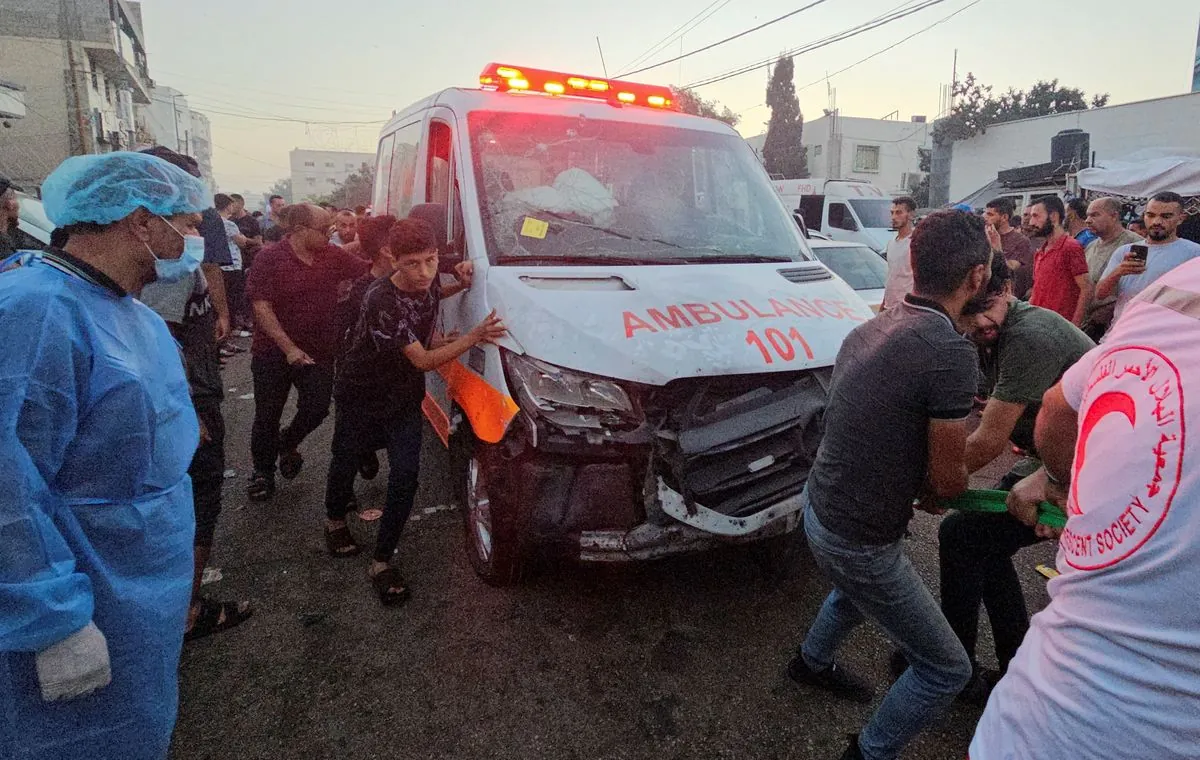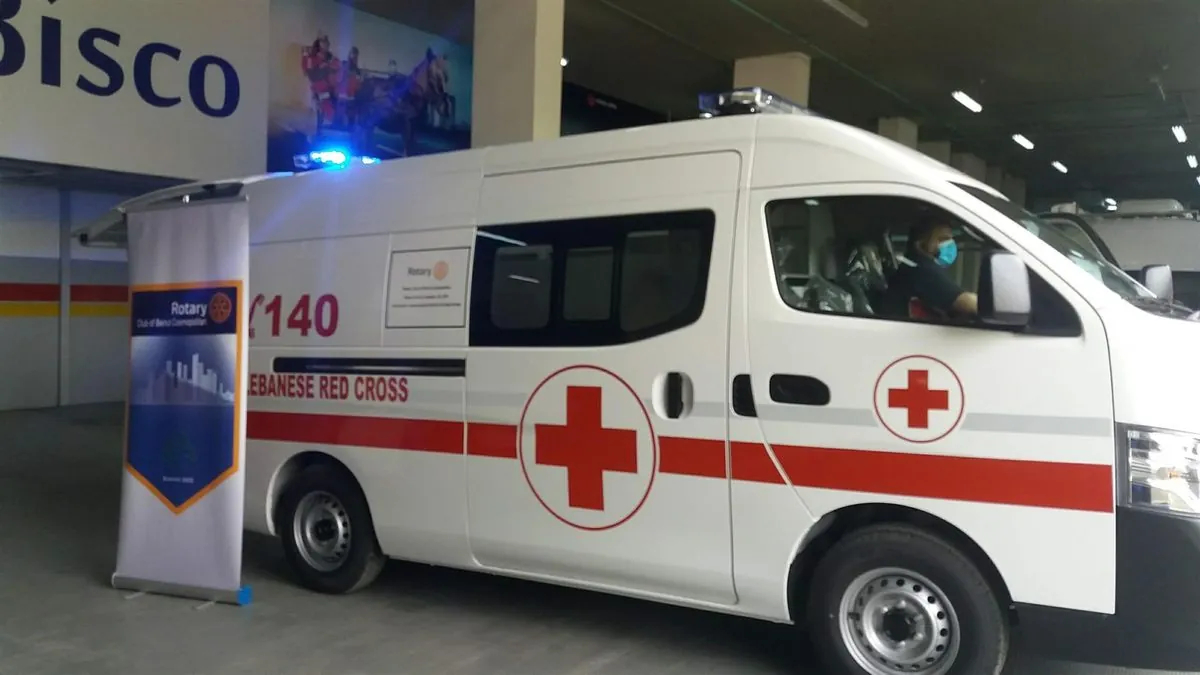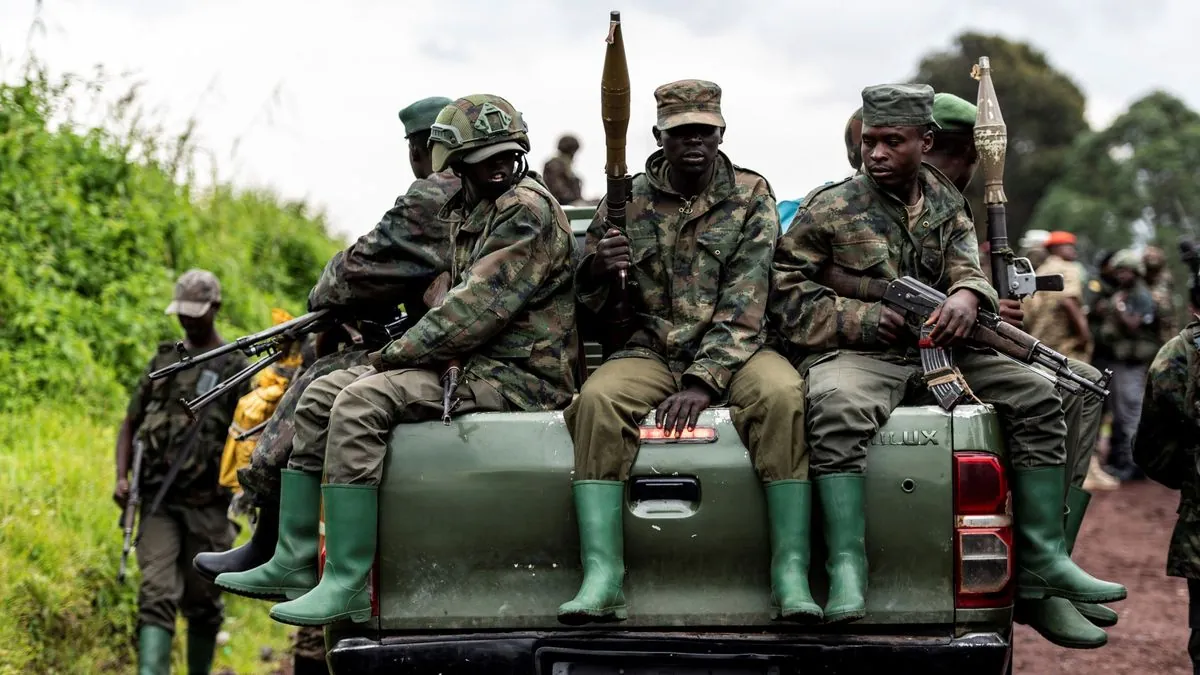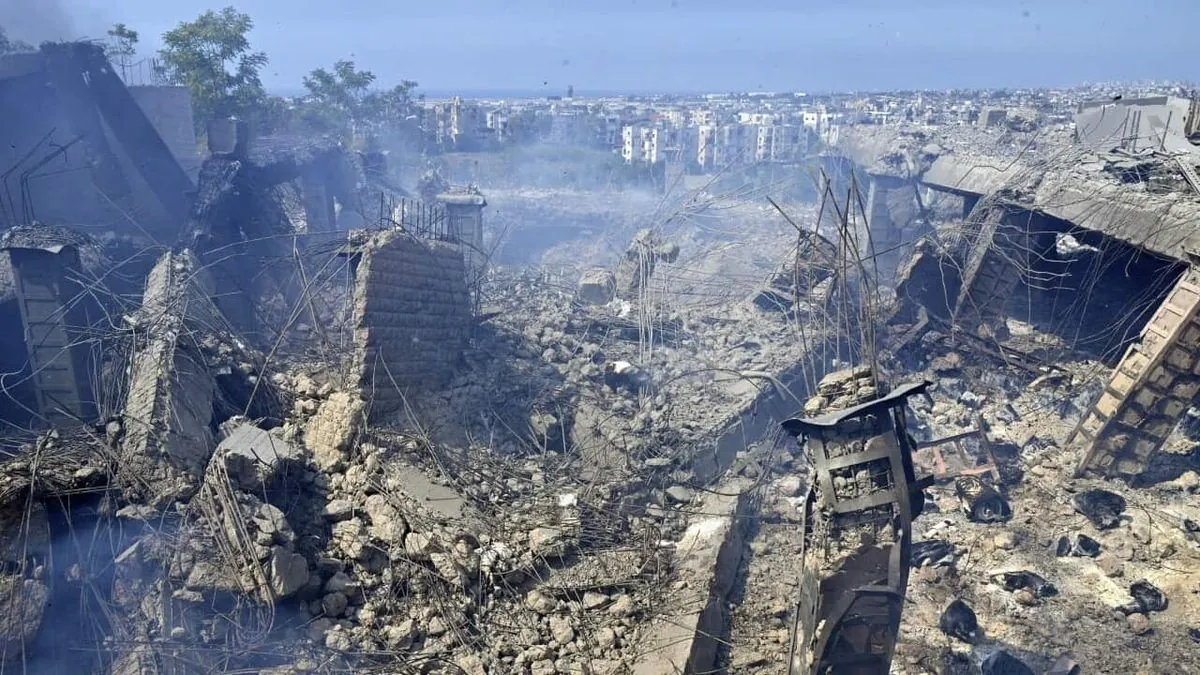Israeli Airstrike on Lebanese Hospital Kills 7 Paramedics, Forcing Closure
An Israeli airstrike near a hospital in southern Lebanon killed seven paramedics, leading to facility closures. The incident highlights escalating tensions and the impact on healthcare in the region.

In a significant escalation of the ongoing conflict between Israel and Hezbollah, an Israeli airstrike near a hospital in southern Lebanon resulted in the deaths of seven paramedics. This incident, which occurred on October 4, 2024, has forced the closure of the medical facility and raised concerns about the safety of healthcare workers in the region.
Mounes Kalakesh, director of Marjayoun hospital, reported that the attack took place without warning, causing extensive damage to the facility. The strike shattered windows and dislodged doors, creating an atmosphere of fear and panic among the staff. As a result, Kalakesh made the difficult decision to evacuate the hospital, citing the need to protect his team.
This attack is part of a broader pattern of violence affecting healthcare facilities and workers in Lebanon. According to the Lebanese health ministry, over the past year, more than 100 health workers have lost their lives due to the ongoing conflict. The ministry also reports that nine hospitals and 45 healthcare centers have sustained damage during this period.
The incident has reignited discussions about the application of international humanitarian law in conflict zones. The Geneva Conventions explicitly prohibit attacks on medical personnel and facilities during armed conflicts, underscoring the gravity of such actions.
Lebanon's healthcare system, already strained by political instability and economic crises, faces further challenges due to these attacks. The country's unique confessional political system and its history of conflicts, including a 15-year civil war from 1975 to 1990, have contributed to the complexity of the situation.
The Israeli military has not commented specifically on this incident. However, their Arabic-language spokesman has accused Hezbollah, a Lebanese Shiite Islamist political party and militant group founded in 1985, of misusing ambulances to transport weapons and fighters. Lebanese officials and hospital directors, including Kalakesh, vehemently deny these allegations.

In a separate incident on October 3, 2024, a Lebanese Red Cross convoy, escorted by Lebanese troops and coordinated with the United Nations Interim Force in Lebanon (UNIFIL), came under fire. This attack resulted in the death of a Lebanese soldier and injuries to four Red Cross volunteers. The Lebanese Red Cross, established in 1945, is a crucial part of the country's emergency medical services.
The closure of hospitals in southern Lebanon, including the Salah Ghandour Hospital in Bint Jbeil, which was shelled on October 5, 2024, after receiving an evacuation warning, further exacerbates the healthcare crisis in the region. Bint Jbeil, a town with historical significance, was a major battleground in the 2006 Lebanon War.
These events unfold against the backdrop of Lebanon's ongoing economic crisis, which began in 2019 and has severely impacted its healthcare system. The country, with a population of approximately 6.8 million as of 2024, has been grappling with brain drain, as many healthcare professionals choose to emigrate.
Despite these challenges, Lebanon has maintained a relatively high physician density compared to other Middle Eastern countries. However, the recent attacks and hospital closures threaten to undermine this advantage and further strain the country's healthcare infrastructure.
As the conflict continues, the international community watches closely, recognizing the potential for further escalation along the Lebanon-Israel border, known as the Blue Line, established by the UN in 2000. The situation remains tense, with both sides accusing each other of violations and provocations.
"The targeting of medical teams and paramedics constitutes a war crime. We call on the international community to intervene and protect healthcare workers who are risking their lives to save others."
The ongoing violence not only jeopardizes the immediate safety of healthcare workers and civilians but also threatens to have long-lasting impacts on Lebanon's healthcare system and its ability to serve its population, including a large number of Syrian refugees. As the situation develops, the need for a peaceful resolution and the protection of medical facilities and personnel remains paramount.


































